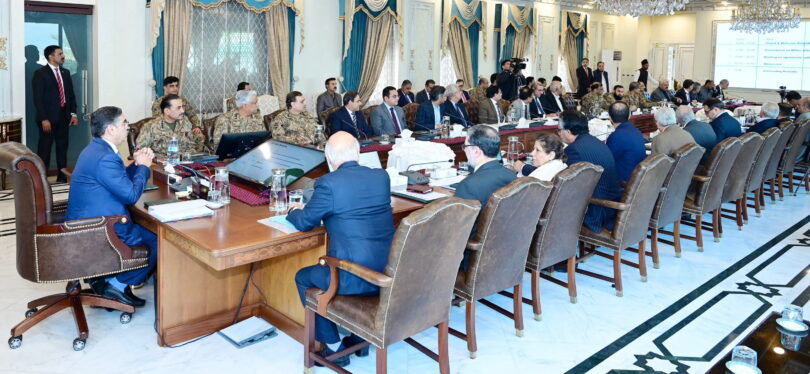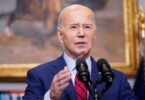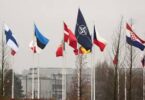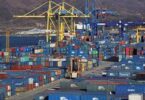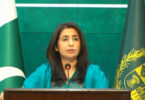F.P. Report
ISLAMABAD: Caretaker Prime Minister Anwaar-ul-Haq Kakar on Friday, appreciating the efforts of relevant ministries for identifying prospective areas of collaboration under the Special Investment Facilitation Council (SIFC), directed all stakeholders for efforts to realise the envisioned long-term economic dividends.
He was chairing a special session of the Apex Committee of SIFC held here to foster strategic partnerships with friendly countries. The meeting was attended by Chief of Army Staff General Syed Asim Munir, ministers and high-level government officials, a PM Office press release said.
The apex committee reviewed the existing level of collaboration and unanimously approved various initiatives to be broached with friendly countries and directed to fast-track implementation of various projects conceived under these initiatives. The Chief of Army Staff assured the unwavering resolve of the Pakistan Army to support economic initiatives being undertaken by the Government of Pakistan.
Pakistan, Kuwait to ink seven MoUs for $10b investment during PM’s upcoming visit: Pakistan and Kuwait will sign seven Memorandums of Understanding (MoUs) for investment worth $10 billion in Pakistan through seven projects in multiple fields including environment, mining and food security.
In this regard, the federal cabinet, in its meeting held on Friday approved seven MoUs to be signed during the upcoming visit of Caretaker Prime Minister Anwaar-ul-Haq Kakar to Kuwait. Consequent to the efforts by the Special Investment Facilitation Council (SIFC), both countries would sign MoUs on multiple projects including the expansion of water reservoirs, mining facilities, conservation of mangrove forests in coastal areas, information technology and food security, a PM Office press release said.
Prime Minister Kakar and the cabinet members appreciated the efforts of the SIFC and the relevant ministries. The prime minister, who chaired the meeting, instructed to ensure cooperation with the provinces for early and fair execution of the projects. The body also endorsed the decisions of the Cabinet Committee for Disposal of Legislative Cases it had taken in its meeting on November 14, as well as those of the Economic Coordination Committee meeting on November 15, 2023.
PM outlines interim government’s key steps as ‘legacy of good governance & reformative approach’: Caretaker Prime Minister Anwaar-ul-Haq Kakar on Friday said with its good governance and reformative approach, the interim government would leave a legacy on the domestic front.
In an interactive session titled ‘Breakfast with the Prime Minister’ organized by Jang Group of Publications, PM Kakar said the caretaker government had to its credit for tackling tough challenges in areas including economy, privatization, and connectivity. The prime minister spoke about his vision about the prospects for a better Pakistan, terming “skilled human capital as the answer to several challenges”.
He said Pakistan, being an important regional member of the Economic Cooperation Organization, boasted a strategic location at the confluence of central and south Asia besides its rich natural resources. The 240 million population with a huge youth bulge under the age of 25 adds value to human capital, he added. He, however, pointed out that it was utmost crucial to provide skill sets to youth through targeted training programmes and warned that non-utilization of their energy could lead to detrimental consequences.
Kakar said one of the priorities of the caretaker government was to focus on a programme, which would train one million nurses in one decade. Also, the government was exploring partnerships with international conglomerates including Siemens, Germany for the development of skills in different areas.
The prime minister said the government was fast-tracking the privatization of State Owned Enterprises and related entities, with Pakistan International Airlines on priority in the list. In this regard, he said, some tangible results were expected to be achieved by mid-January. PM Kakar dismissed the notion that people leaving the country to move abroad was a sign of any failure.
“Brain drain can become a brain asset [in future] and this is a sanguine and positive way to perceive it… Pakistan is a civilization of diversified creative potential which makes it “rich” in a true sense,” he said. On attracting foreign investment, he said the Special Investment Facilitation Council (SIFC) was providing an opportunity for ease of business, adding that the country expected good news in weeks about foreign investment of billions of dollars in areas of agriculture, information technology and mining.
He expressed confidence that SIFC, a platform with representatives from civil and military domains, would ensure the continuity of projects despite the change of governments. He also endorsed the idea of including members of the business community to expand its potential. He said EXIM (Export-Import) Bank was working on providing financial services to Pakistan, which would help the local businessmen and traders to carry out financial transactions abroad.
Highlighting connectivity as a crucial area, he said the Trans-Afghan railway would connect Uzbekistan with Pakistan. Also, the work on the improvement of Quetta-Taftan rail network is underway, he said. The recently launched direct flights with Azerbaijan would reduce travel time and promote trade, he said.
The prime minister favoured reforms in taxation and said his government believed in cutting expenditures and was also working on the forthcoming reforms of the Federal Board of Revenue (FBR). Wealth creation through taxation is the best tool for a government to use the revenue for establishing schools, hospitals, and road infrastructure, he said.
He said the media in the country was enjoying freedom and was “beyond any sort of control particularly the social media”. He, however, stressed the need to formulate regulations after deliberations with stakeholders to cater to the challenges of digital media “without stifling and putting restrictions on it”. PM Kakar said the current political scenario was “not a crisis, but a continuation of process in the transitional democracy of Pakistan”.
He expressed optimism that with the continuity of the democratic process, the people would gradually start linking parties with their performance and service delivery. PM Kakar emphasized the importance of local government system to address the civic problems faced by the people in remote areas such as south and north Waziristan. “There is a need to shun the urban-oriented governance and adopt a more inclusive approach of bringing the far-flung areas of the country at par with developed cities,” he said.

